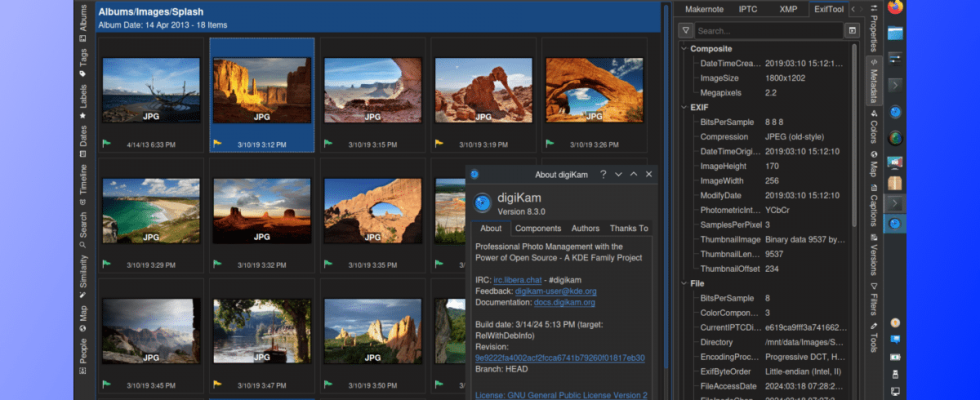The developers of the open source image manager digiKam have released version 8.3.0. Above all, they corrected errors and carried out further fine-tuning when switching to the Qt 6 framework.
Advertisement
The internal RAW decoder is the Version announcement of the digiKam project According to the sources, it has been updated to the status of the beginning of February 2024. In particular, bugs that have existed for a long time were taken care of. There has been progress in the area of internationalization: digiKam and Showfoto can now display labels in 61 languages in the user interface. The online documentation has also received several translations and is available in 15 languages, including Chinese, German, French, Italian, Japanese and Spanish.
digiKam: many detailed improvements
The Windows port of digiKam no longer relies on cross compiler, but instead uses Microsoft’s VCPKG toolchain for translation. This is intended to improve the compatibility and stability of the application. The programmers were also able to move the Windows version from Qt and KDE frameworks version 5 to the 6 version. This resulted in some errors that have now been fixed with digiKam 8.3.0. For the Linux and macOS bundles that still run with Qt 5, the migration is scheduled to take place this year.
The internal media player was also cleared out. The Qt 6 version now uses QtMultimedia, while the Qt 5 version uses the new QtAVPlayer framework. Both are based on FFMpeg for audio and video playback. This means that closed source drivers can no longer be added by the operating system. The expulsion of QtAV corrected many of the long-term errors in the internal media player. The developers were also able to improve the video slideshow plug-in. FFMpeg is now also used to encode videos; the result is displayed with QtAVPlayer. Audio tracks are now also supported, timelapse videos can be created and the on-screen display shows metadata such as date, comments, aperture, lens properties and the like.
Automatic tagging through content analysis also made progress. Since mid-2023, a student has been working on implementing this in digiKam using a deep learning engine with a pre-trained model. The resulting tool automatically creates keywords, which users still have to confirm. Two additional tools have been added. The images are processed locally on the computer in the background on available cores.
The version announcement lists other minor improvements. The digiKam developers are planning to publish the next maintenance release next February. By then, the Linux AppImage should be converted to the latest Qt and KDE Framework 6 version like the Windows version. They also want to port the macoS version to Apple Silicon. This has already been largely completed, only the packaging section still needs to be finalized. The new versions can be found in KDE repository by digiKam download. They are available for download there as sources, 64-bit Linux AppImage, for Windows 10 64-bit and newer as well as for macOS with Intel CPU architecture (but compatible with Apple Silicon by using Rosetta 2).
Version 8.0 of digiKam was released around a year ago. It initiated the move to the Qt 6 framework and added support for modern image formats such as WebP, HEIF and JPG-XL.
(dmk)

